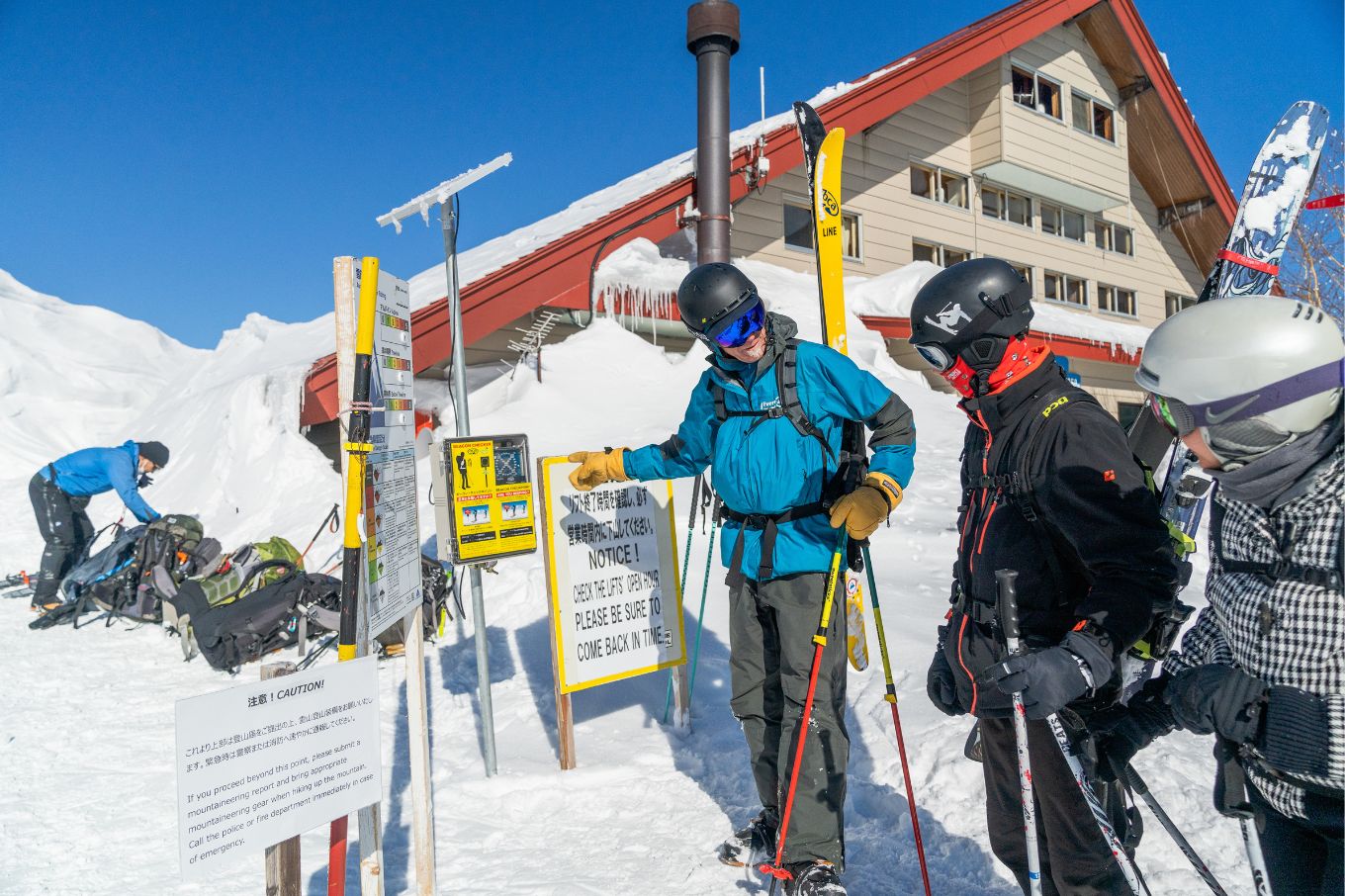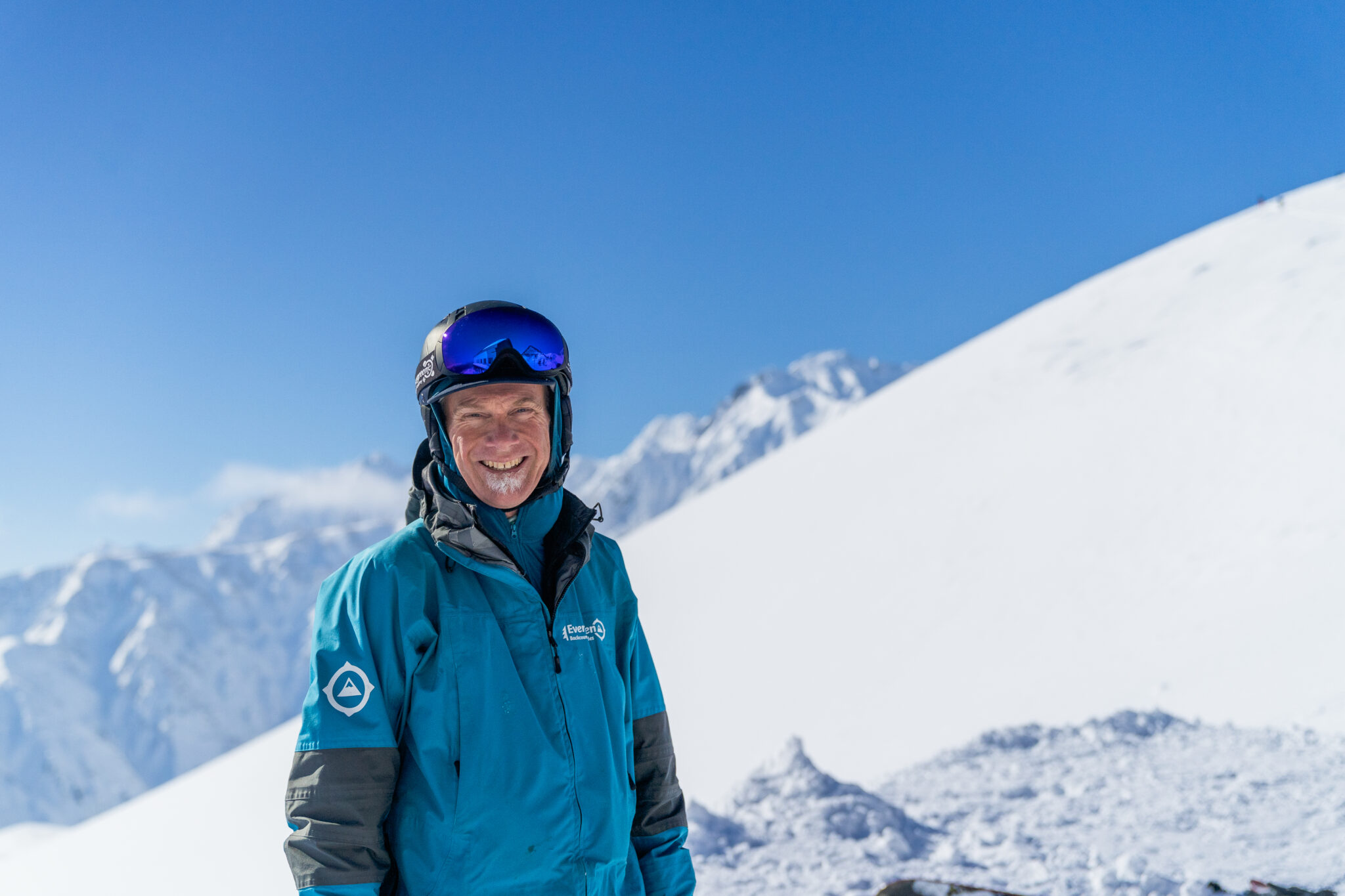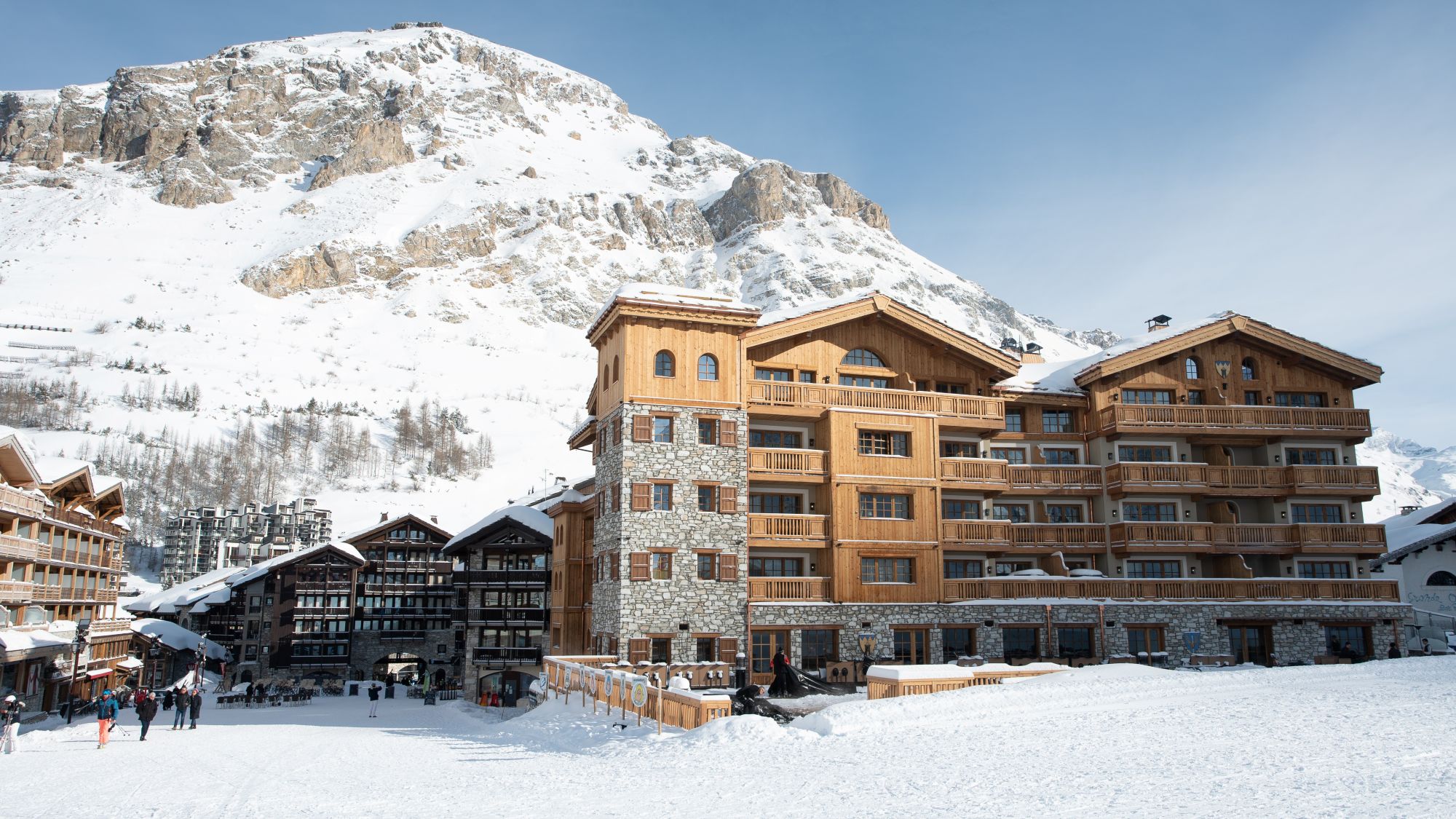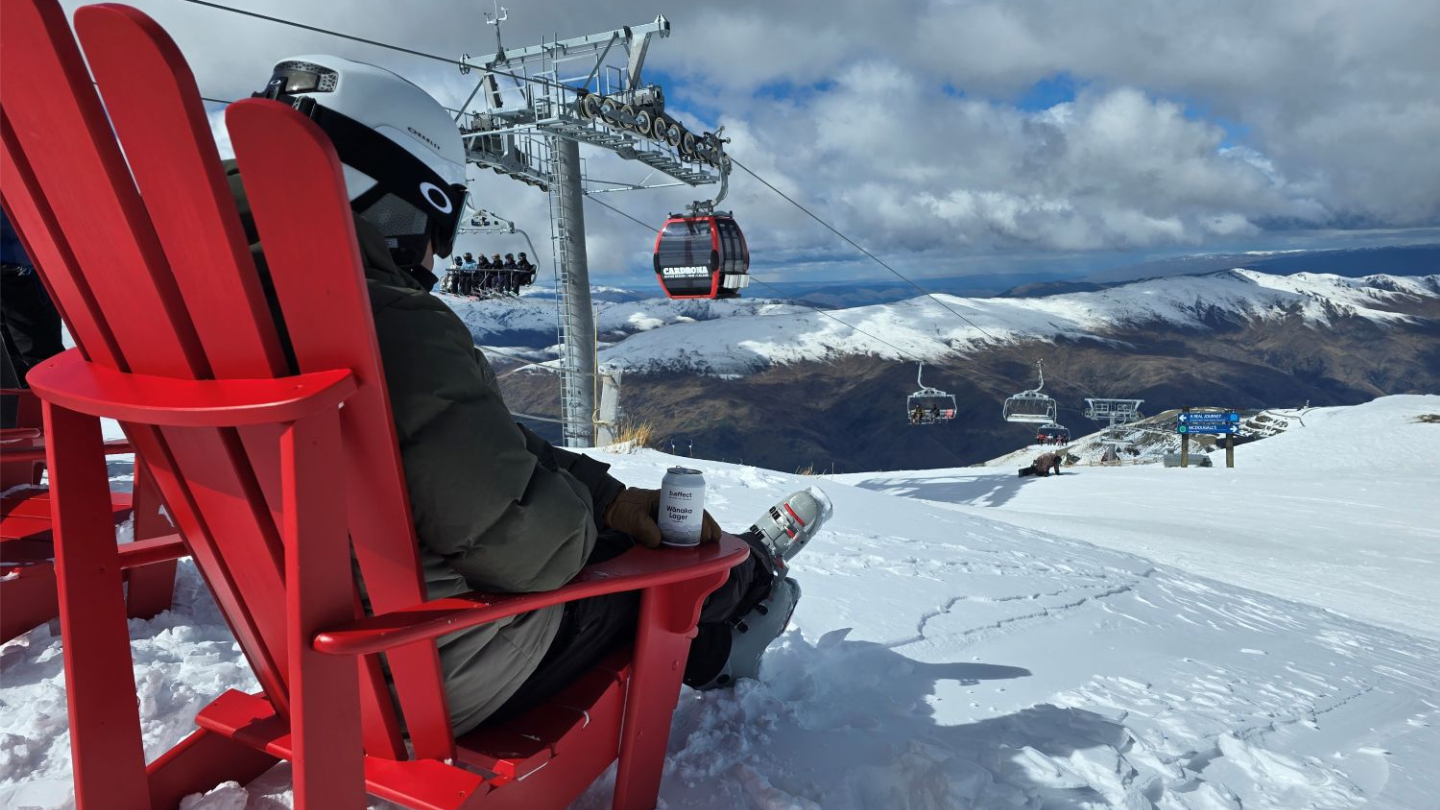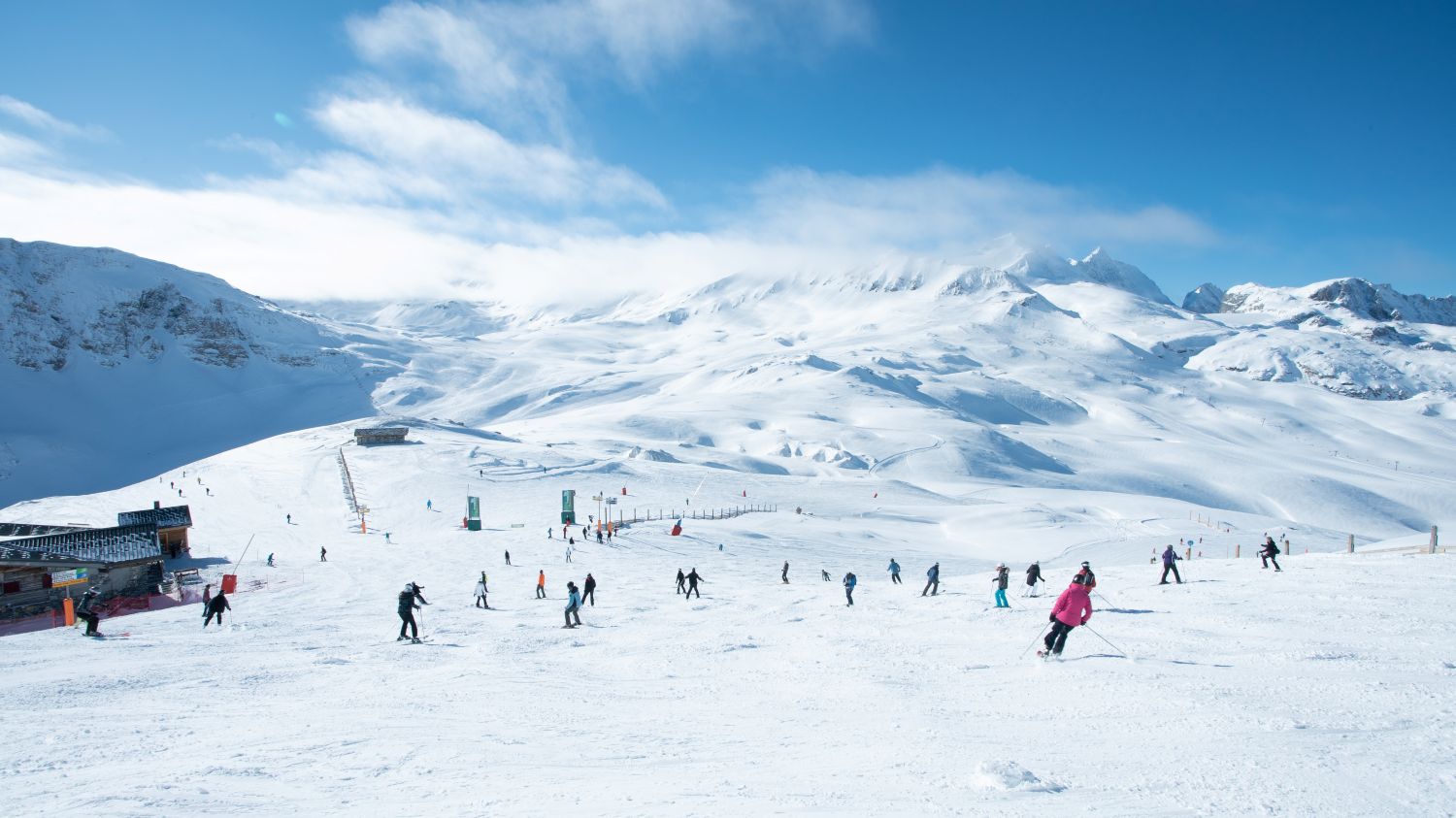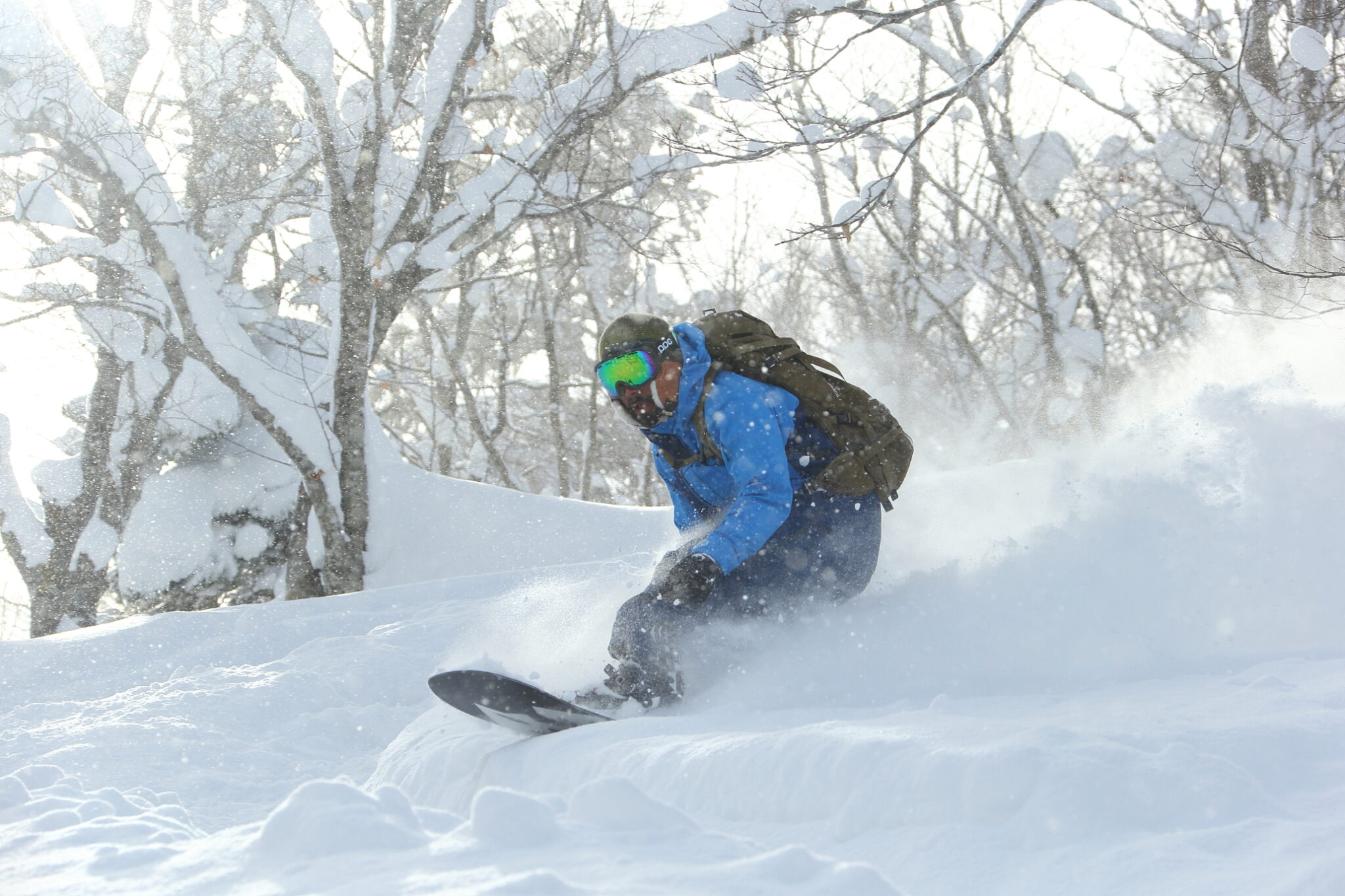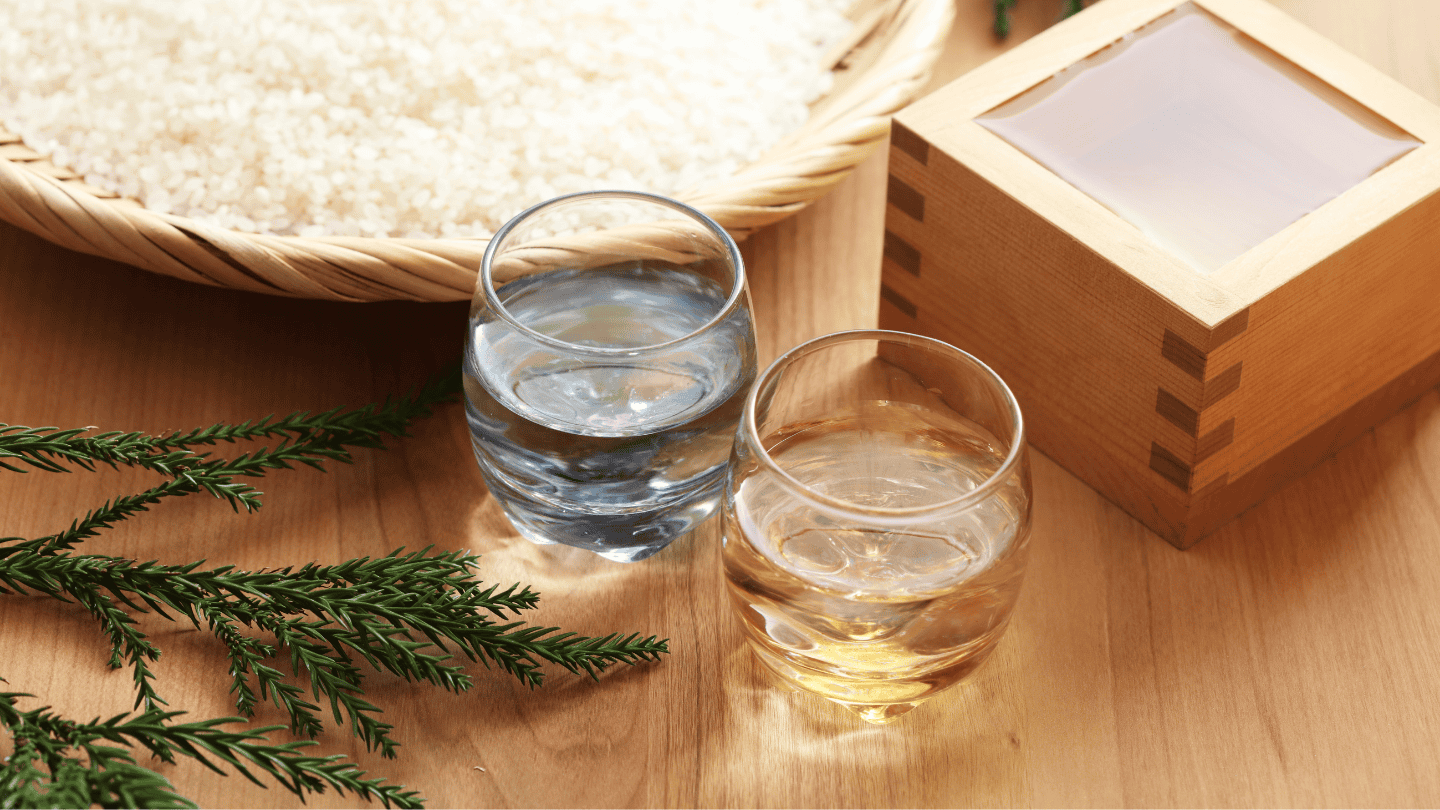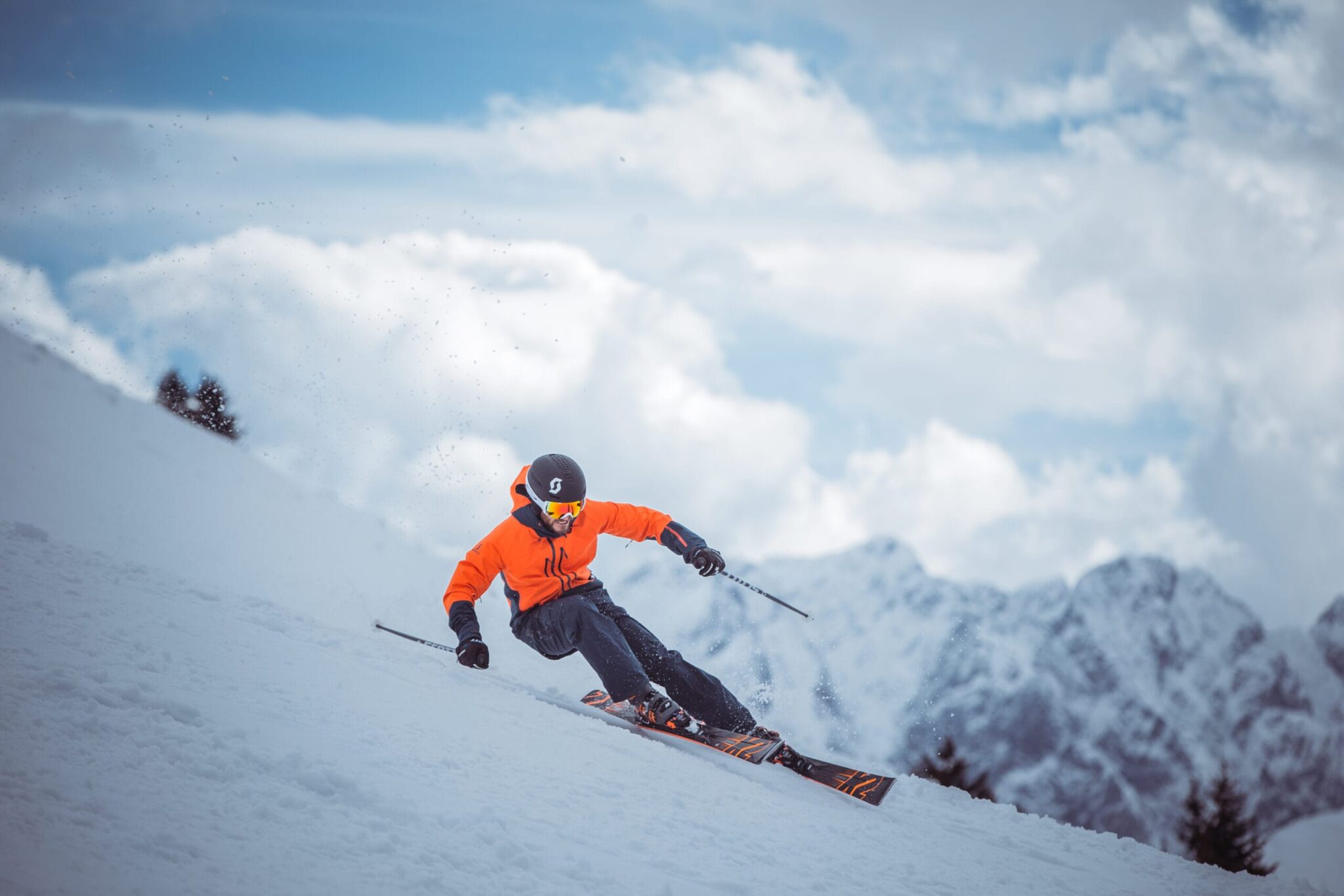It took a tragic accident in Hakuba to spark a revolution in backcountry safety standards, setting Dave Enright on a mission to transform how people experience Japan’s winter mountains.
In 2000, Dave, a Canadian avalanche professional living in Hakuba Valley with his wife Mariko, was working as a ski patroller at Hakuba Cortina when three Kiwi snowboarders lost their lives in a devastating size 3.5 avalanche on Happo’s North Faces. Despite in-resort competence, they lacked backcountry knowledge and essential avalanche safety gear like transceivers, probes and shovels. Four days after the tragic event, it was left to Dave to debrief the families and deliver the terrible news that their sons were dead.
Reflecting on the event, Dave recalls: “It was like searching for a needle in a haystack. Without transceivers, we had only 10 probes and a dozen people to search an area the size of five football fields.” This was only one of many tragedies that drove Dave to address huge gaps in avalanche safety and education within Japan.
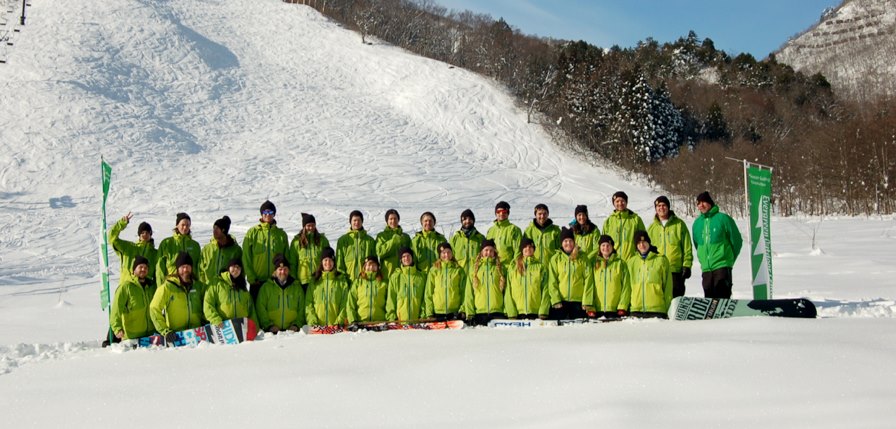
Pioneering Avalanche Safety in Japan
Dave’s expertise as a professional member of the Canadian Avalanche Association (CAA) became instrumental in shaping Japan’s avalanche safety landscape. He introduced standardized Recreational Avalanche Courses (RAC) and co-founded organizations like NPO-ACT and assisted in the formation of JAN (Japan Avalanche Network), modeled after Canada’s CAA. Dave personally taught the JAN Industry Training Programs, trained local guides, police, and search-and-rescue teams for a decade while establishing best practices for avalanche risk management.
Dave also played a key role in opening Hakuba Valley’s renowned tree skiing zones with the creation of the Double Black Diamond Club at Hakuba Cortina, now known as DBD and developing or consulting for off-piste programs Tsugaike Kogen, Hakuba 47, Happo, Kijima Daira and Tomamu in Hokkaido.
A Legacy of Adventure
Founded in 2000, Evergreen Outdoor Center has grown into one of Japan’s premier outdoor activity providers. “There weren’t many foreigners coming to Hakuba in the early days and most of our guests were Japanese or foreigners living in Japan”, explains Dave. Along with the 1998 Nagano Olympics, Evergreen Outdoor Center has done a lot to promote The Hakuba Valley. Today, it employs 240 staff during winter and 50 over the summer months where Evergreen offers canyoning, rafting, mountain biking, youth summer camps and outdoor camps for schools.
Evergreen is proud to have trained over 200 participants this past winter through Avalanche Canada-certified courses (AST 1 & 2), and put 800 candidates through Canadian Ski and Snowboard instructor certification courses. Its ski school has taught tens of thousands of children and adults over the 25 years, some returning with their own children and Dave and Mariko are thrilled to see things come full circle.
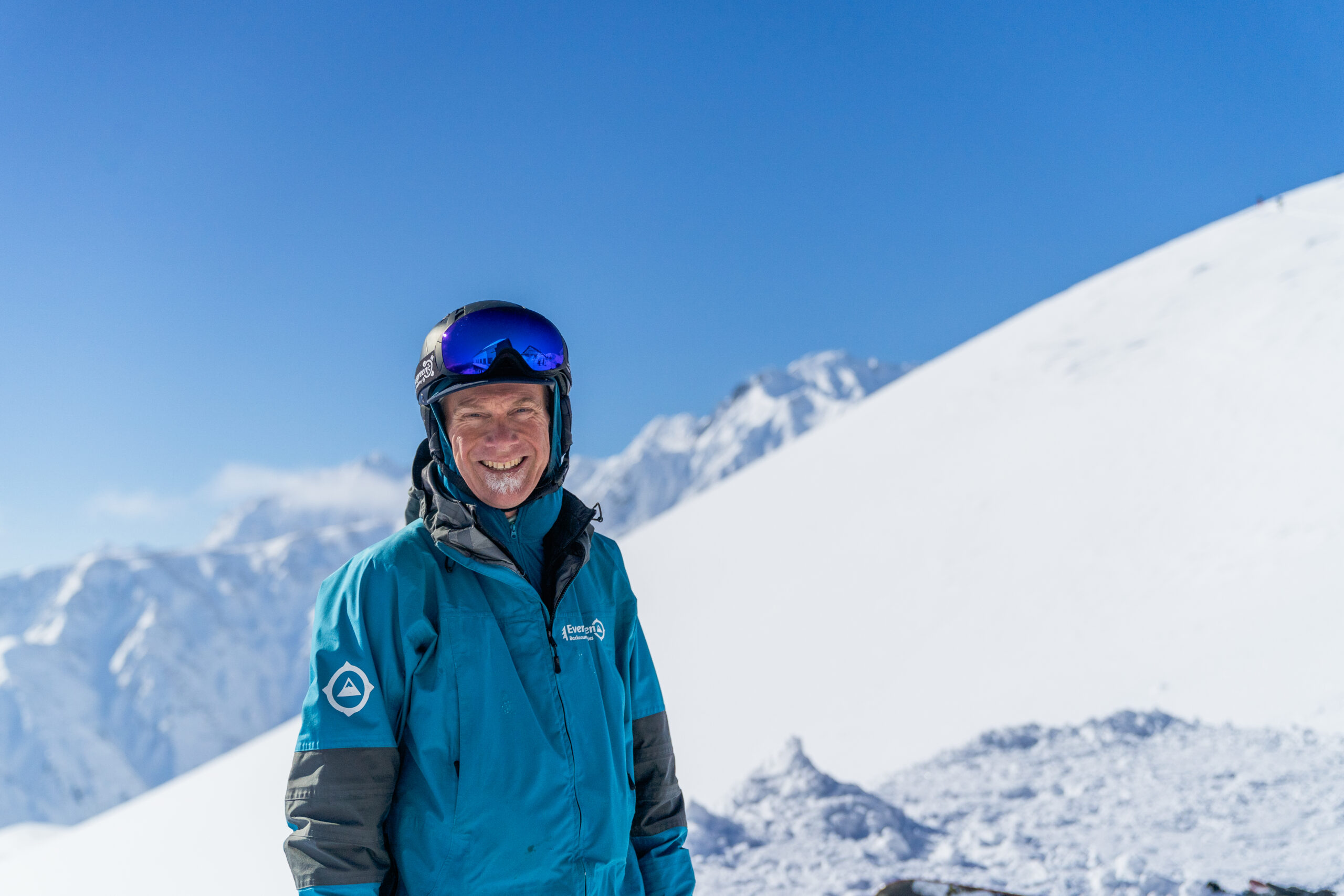
Hakuba, A Destination for Families
Dave emphasises that backcountry skiing doesn’t have to be extreme: “It’s about finding the best snow under safe conditions.” Evergreen customises lessons and tours for all skill levels, making it great for families seeking a bit of adventure but not wanting to compromise safety.
With Hakuba’s growing popularity among visitors from Australia, New Zealand, North America, Asia and Europe, Dave advises booking as soon as you know you will be visiting Hakuba for ski instruction, courses or guiding services for the 25/26 season.


